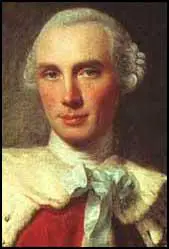John Stuart, 3rd Earl of Bute

John Stuart, the son of 2nd Earl of Bute, was born in 1713. He succeeded his father in 1723 and by 1737 had become one of Prince Frederick's lords of the bedchamber. When Prince Frederick died in 1751 Bute joined the staff of his son, the Prince of Wales.
In 1760 George succeeded his grandfather, George II, as king. George and Bute decided to try and break the power of the Whigs in Parliament. A year after becoming king, Bute was invited to become prime minister. This decision upset a large number of MPs who considered Bute to be incompetent and under the control of the king.
John Wilkes became Bute's leading critic in the House of Commons. In June 1762 Wilkes established The North Briton, a newspaper that severely attacked the king and his Prime Minister. After one article that appeared on 23rd April 1763, George III and his ministers decided to prosecute Wilkes for seditious libel. Wilkes was arrested but at a court hearing the Lord Chief Justice ruled that as an MP, Wilkes was protected by privilege from arrest on a charge of libel. His discharge was greeted with great popular acclaim and Wilkes left the court as a champion of liberty.
Some people believed that Bute was attempting to extend monarchical power and after street demonstrations against him in 1763 he resigned. Bute continued to advise George III and members of the House of Commons complained that he was attempting to undermine the new Prime Minister, George Grenville. After coming under increasing pressure from his government, the king agreed in 1765 to stop consulting Bute.
Although Bute withdrew from political life, Whigs continued to accuse him of secretly advising the king. John Stuart, 3rd Earl of Bute, died in 1792.
